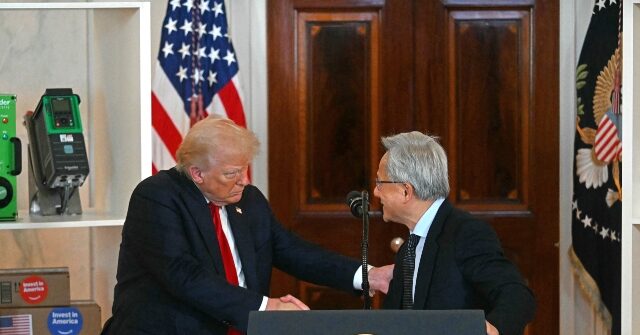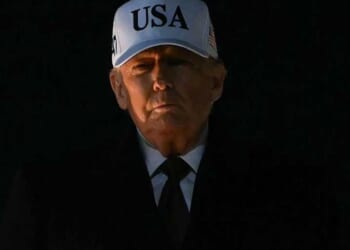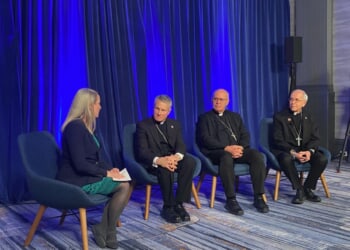Nvidia CEO Jensen Huang announced that the company will build seven supercomputers for the Department of Energy with up to 100,000 chips all made in America. Huang said, “The first thing that President Trump asked me is, ‘bring manufacturing back.’”
The New York Post reports that Nvidia CEO Jensen Huang made several significant announcements during the keynote address at the company’s GTC event in Washington, DC, highlighting the company’s ongoing success and its commitment to advancing e AI technology. The event, held for the first time in the US capital, signifies Nvidia’s pursuit of work with the government and contractors in the area.
Huang used the address to reveal that Nvidia plans to build seven new supercomputers for the US Department of Energy. These supercomputers will serve various purposes, including maintaining and developing the United States’ nuclear weapons arsenal and researching alternative energy sources such as nuclear fusion. The largest of these supercomputers will be built in collaboration with Oracle and will contain 100,000 of Nvidia’s Blackwell chips.
Huang also revealed that Nvidia has secured an impressive $500 billion in bookings for its Blackwell and Rubin chips over the next five quarters, demonstrating the strong demand for the company’s AI technology. This announcement comes as Nvidia navigates the US-China trade war, which could determine which country’s technology will dominate the global market.
In addition to the supercomputer projects, Nvidia announced a new partnership with Finnish telecom equipment maker Nokia to target the AI communications market. Nvidia will invest $1 billion for a 2.9 percent stake in Nokia and introduce a new product line called Arc, designed to work with telecommunications equipment. The collaboration aims to improve the power efficiency of Nokia’s base stations for 6G, the next generation of wireless data technology.
Nvidia also unveiled a partnership with Palantir Technologies, a company that works closely with the US government. The focus of this partnership will be on Palantir’s commercial business, where Nvidia will help speed up solving logistics problems for companies such as home improvement retailer Lowe’s.
In the automotive sector, Nvidia introduced a new self-driving car technology platform called Hyperion and announced a partnership with Uber to create a network of Robotaxis. Huang expressed his expectation for this new computing platform to be quite successful.
As the US government focuses on AI and expanding its computing power, Nvidia’s competitors are also making significant moves. AMD recently unveiled a $1 billion partnership with the Department of Energy to construct two supercomputers that will tackle large scientific problems ranging from nuclear power to cancer treatments to national security.
The flow of advanced technology between the US and China is expected to be a key issue in the upcoming trade discussions between President Trump and Chinese President Xi Jinping. Huang, always friendly with China, has argued that Nvidia needs access to some $50 billion in potential sales from the Chinese market to fund US-based research and development and maintain the company’s edge in the AI industry.
Despite the challenges posed by the US-China trade war, Nvidia continues to manufacture chips in Arizona at TSMC’s facilities, assemble servers in Texas, and produce networking gear in California. Huang praised President Trump’s efforts to bring manufacturing back to the United States, stating, “We are manufacturing in America again — it is incredible. The first thing that President Trump asked me is, ‘bring manufacturing back.’”
As Nvidia continues to innovate and expand its presence in various industries, the company’s success and growth seem poised to continue, solidifying its position as a global leader in AI technology.
Read more at the New York Post here.
Lucas Nolan is a reporter for Breitbart News covering issues of free speech and online censorship.


















